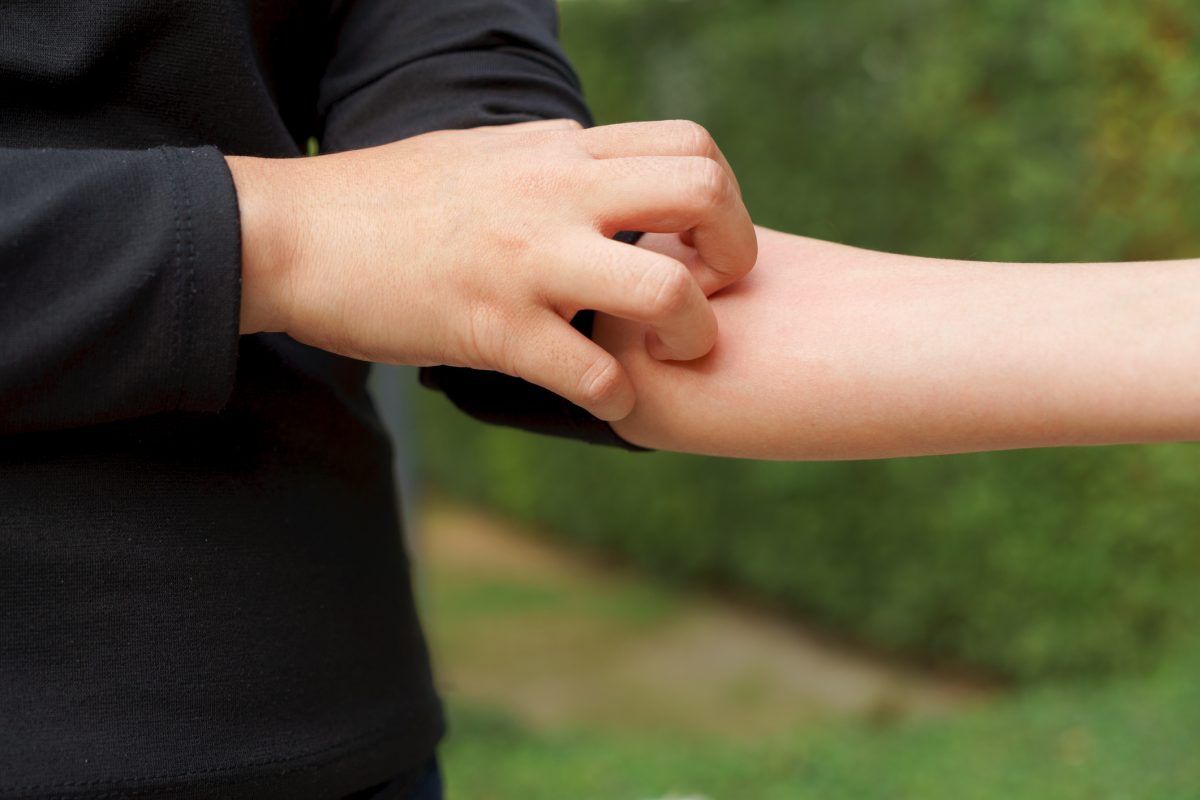Eczema is one of the most common skin conditions, affecting 17 million Americans and 10% of children in Tennessee.
The allergic reaction affects so many people because it targets our biggest organ: our skin.
“People don’t think of skin as an organ like your heart or lungs, but it is a very important one that just happens to be on the outside,” says Dr. Gina Moore Dudley, BlueCross medical director and pediatric specialist and internist. “Skin protects us from so many things entering our body and causing harm. Whenever something crosses that barrier, it’s a big deal.”
What is eczema?
Eczema, or atopic dermatitis, is an allergic reaction that makes skin red and itchy.
Symptoms include:
- Dry skin
- Itching
- Small bumps which may leak fluid
- Thick, cracked, scaly skin
- Raw, sensitive, swollen skin
- Changes in skin color
- People with lighter skin tones may see red to brownish-gray patches
- People of color may see darkening of the skin (hyperpigmentation) or decreased pigmentation (hypopigmentation), which makes skin lighter
Where does eczema usually occur?
The most common places are:
- Eyelids
- Neck and upper chest
- Hands and wrists
- Feet and ankles
- Inside the bend of elbows and knees
- Face and scalp in infants
“As babies, eczema might start out on the cheeks and progress to the arms or thighs. In adults, it usually starts on the arms and legs,” says Dr. Moore Dudley.
Who does eczema affect?
Eczema can affect anyone at any time in life, but people often notice it in infants. You are more likely to develop eczema if your parents or siblings have it, or if you suffer from other allergic conditions.
“Allergies, asthma and eczema are all in the same family,” says Dr. Moore Dudley, “so if you have one condition, you’re more likely to have another.”
Is eczema contagious?
“Absolutely not,” says Dr. Moore Dudley. “People think of skin and they think, ‘I don’t want to touch that person because I might get that from them,’ but eczema isn’t something you can catch. You either have it or you don’t.”
If you have eczema, are you more likely to get it again?
Yes. Eczema is a chronic condition, so if you get it once, it will likely come back unless — and sometimes even if — you make changes to your environment.
What triggers eczema?
1. Scents
The same allergens that affect people with asthma and nasal allergies tend to worsen eczema:
- Detergents
- Perfumes or colognes
- Lotions
- Soaps
- Other scented things
2. Foods
Food triggers for eczema are highly individualized. For one person, citrus is a trigger, while for another, it is chocolate or red meat.
3. Medication
Medication triggers for eczema are also highly individualized, so any medicine can cause a flare-up.
4. Environment
Pollen and pet dander are frequent triggers, as are mold, mildew and dust. Carpet can make things worse by trapping and holding environmental irritants.
How do you treat eczema?
Treatment will be based on symptoms, but there should be 3 main steps:
1. Avoid triggers and decrease trauma
Keep a diary so you can identify what causes your eczema to flare up. And try not to scratch.
“Not scratching is hard, especially in children, but it is crucial,” says Dr. Moore Dudley. “When kids with eczema scratch with dirt under their nails, it’s easy to introduce bacteria because the top layer of the skin is already missing. That creates the perfect setup for infection, so you must keep their nails neatly trimmed.”
2. Moisturize, moisturize, moisturize
“I can’t stress enough how important moisture is for people with eczema,” says Dr. Moore Dudley. “When you get out of the bath or shower, pat dry — don’t rub or it will remove too much moisture. Then lock in that moisture with a barrier like a healing ointment or cream. You can also use a wash with oatmeal, which soothes the skin.”
3. Take medication as directed
Most people don’t respond to environmental changes and moisturizing alone, so the doctor may treat eczema with steroids. If you are prescribed a steroid cream, apply it properly:
- Don’t slather steroids anywhere other than the affected areas
- Avoid breaks in the skin, and
- Avoid the face, where absorption rates are higher than in the rest of the body.
“We can’t always explain inflammatory responses, but we can figure out what contributes to them, and that’s how we help people regain control,” says Dr. Moore Dudley.
Learn more about childhood skin conditions from the American Academy of Pediatrics at HealthyChildren.org or about adult eczema from the American Academy of Dermatology.
Get more information about specific health terms, topics and conditions to better manage your health on bcbst.com. BlueCross BlueShield of Tennessee members can access wellness-related discounts on fitness products, gym memberships, healthy eating and more through Blue365®. BCBST members can also find tools and resources to help improve health and well-being by logging into BlueAccess and going to the Managing Your Health tab.



WellTuned provides inspiration and practical advice for healthy living.
WellTuned does not offer medical advice. Any personal health questions should be addressed to your doctor.